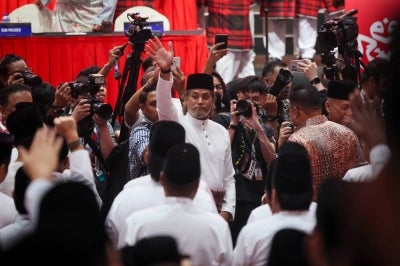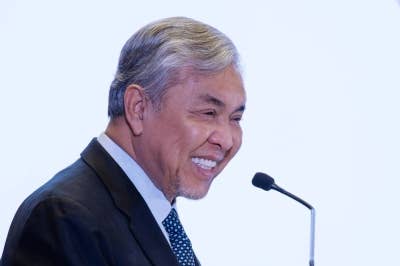Is Umno facing an 'I don't want to vote' crisis?
WONG CHIN HUAT
THE Kemaman by-election is over.
Terengganu Menteri Besar Datuk Seri Dr Ahmad Samsuri has emerged victorious as expected.
Despite Perikatan Nasional's (PN) attempt to revive the dream of seizing the federal government with Samsuri's victory, portrayed as the 11th Prime Minister (PM) candidate, the echoes of Sheraton Move 2.0 seemed increasingly like empty promises.
Unless PMX himself wished to dissolve Parliament earlier, the 15th Parliament seemed poised to endure until Dec 18, 2027.
This will give PMX time to approach ambitious goals in the Madani Economy, such as ensuring that 45 per cent of the nation's income came from the labour sector and achieving a 60 per cent female workforce participation rate.
Turning to the Kemaman by-election, what actually happened with the PN-Pas majority increasing from 27,179 to 37,220 votes?
Has Pas support grown stronger? The answer is no.
In the 15th General Election (GE15), Pas candidate Che Alias Hamid garnered 65,714 votes, slightly higher than Samsuri's 64,998 votes.
However, Samsuri's vote percentage (70 per cent) was higher than Che Alias' (47 per cent) because the voter turnout has decreased from 81 per cent to 65 per cent.
Who were the voters who appeared in GE15 but abstained in the by-election? In GE15, Umno obtained 38,535 votes, while PH got 8,340.
The total for both blocks was 46,875.
Although Umno candidate General (B) Tan Sri Raja Mohamed Affandi was recognised as a formidable figure, he only received 27,778 votes.
In other words, 19,097 or over 40 per cent of Umno and PH voters in GE15 joined the 'I Don't Want to Vote Party' and supported PN.
What could be the reasons for this political migration?
First, Samsuri's popularity as a capable MB and the decision of Pas and PN to present him as the potential 11th PM.
The people of Terengganu may want a PM from their own state.
If this was true, some - perhaps not many - Umno/PH voters may have switched sides.
Second, many rural voters did not turn up to vote, either because they felt Samsuri's victory was expected and their vote wouldn't make a difference, or because returning to vote - rather than voting remotely - became a burden for less mobile voters.
If it was true, not only did Umno voters not return, but there were likely Pas voters who did not return either.
If so, the 64,998 votes won by Samsuri were not all Pas supporters from GE15 but also included Umno/BN voters who had changed their minds.
Third, only local Umno/PH voters did not turn out because they expected Samsuri's victory.
They were reluctant to uphold Mohamed Affandi/Umno/Madani government with a large Pas majority.
These three possibilities refuted the 'referendum' narrative because what happened in Kemaman may not necessarily happen elsewhere.
For example, Pas is unlikely to have another MB presented as a potential PM.
Fourth, only Umno voters joined the 'I Don't Want to Vote Party', as they could not see Umno's future becoming glorious again.
Their lethargy has led them to avoid preserving the party's face in the expected defeat.
If this fourth possibility resonated with you, share your views with me at chinhuatw@gmail.com.
Let's discuss next week.
Do not neglect friends.
Do not forget acquaintances.
If sick, seek medicine.
If defeated, seek a way.
Professor Wong Chin Huat is the Deputy Head (Strategy) at the Asian Office, United Nations Sustainable Development Solutions Network (SDSN-Asia) at Sunway University.
The views expressed in this article are the author's own and do not necessarily reflect those of Sinar Daily.
Download Sinar Daily application.Click Here!














